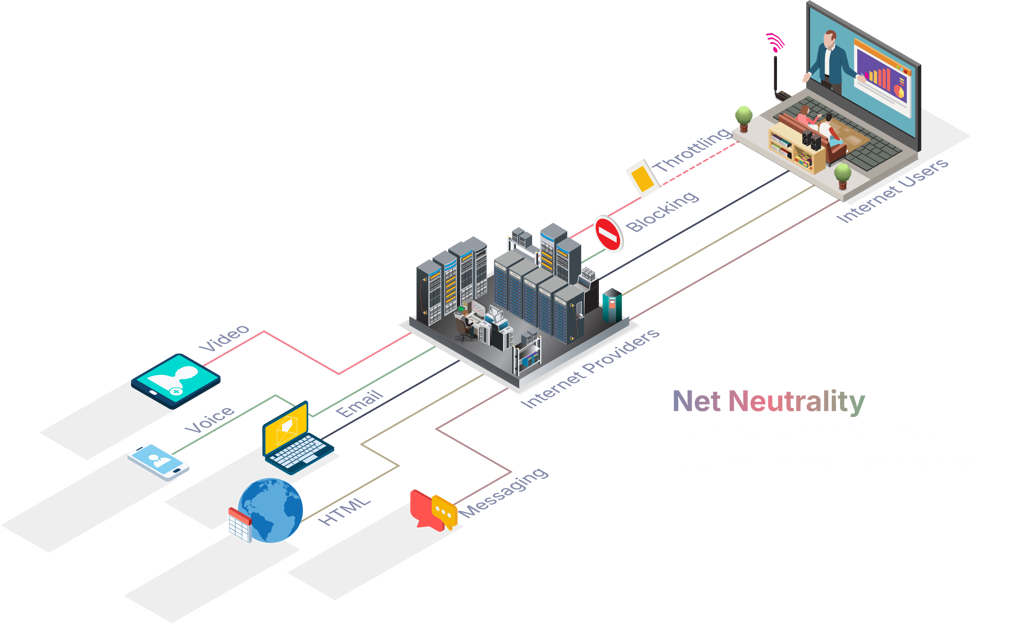
Net Neutrality is the principle that Internet Service Providers (ISPs) must treat all data on the Internet the same way, regardless of its source, type, or destination. This means ISPs should not discriminate or charge differently based on user, content, website, platform, or application. Net neutrality rules ensure that the Internet remains an open and accessible platform where all users have equal access to online information and services, thus fostering innovation, competition, and freedom of expression. Advocates argue that without net neutrality, ISPs could prioritize their services or those of partners, creating a tiered internet where only those services that can afford to pay for better speeds and access can thrive.
5G is a game-changer with its promise of high-speed Internet, low latency, and the ability to connect numerous devices simultaneously. However, the potential impact of Net Neutrality policies on its deployment and utilization may impact the technology investment decisions of Mobile Network Operators. If Net Neutrality protections are relaxed, MNOs might prioritize their 5G services or charge extra for faster application connections to recoup the extensive investments made into network deployment. This could limit the accessibility and affordability of 5G networks, hinder innovation, restrict competition, and widen the digital divide.
The deployment of fiber-optic networks, known for providing high-speed, reliable internet connections, also intertwines with Net Neutrality issues. Fiber-optic infrastructure is essential for supporting the high data demands of modern internet usage and future technologies. However, without Net Neutrality, ISPs, the gatekeepers of internet access, could favor their fiber deployment projects or provide preferential treatment to certain content providers over others who might rely on different ISPs. This could lead to anti-competitive behaviors on one side or limiting investment by ISPs, stalling the progress of widespread fiber deployment and ultimately slowing down the overall advancement of internet infrastructure. Maintaining net neutrality, while vital to maintaining access to applications and internet-based services, comes at a cost to operators who provide physical infrastructure, furthering the debate. If Netflix uses 50% of the internet bandwidth, should they pay separately for all the expansion of global infrastructure required for their service and profits to thrive? That is the primary case example.
